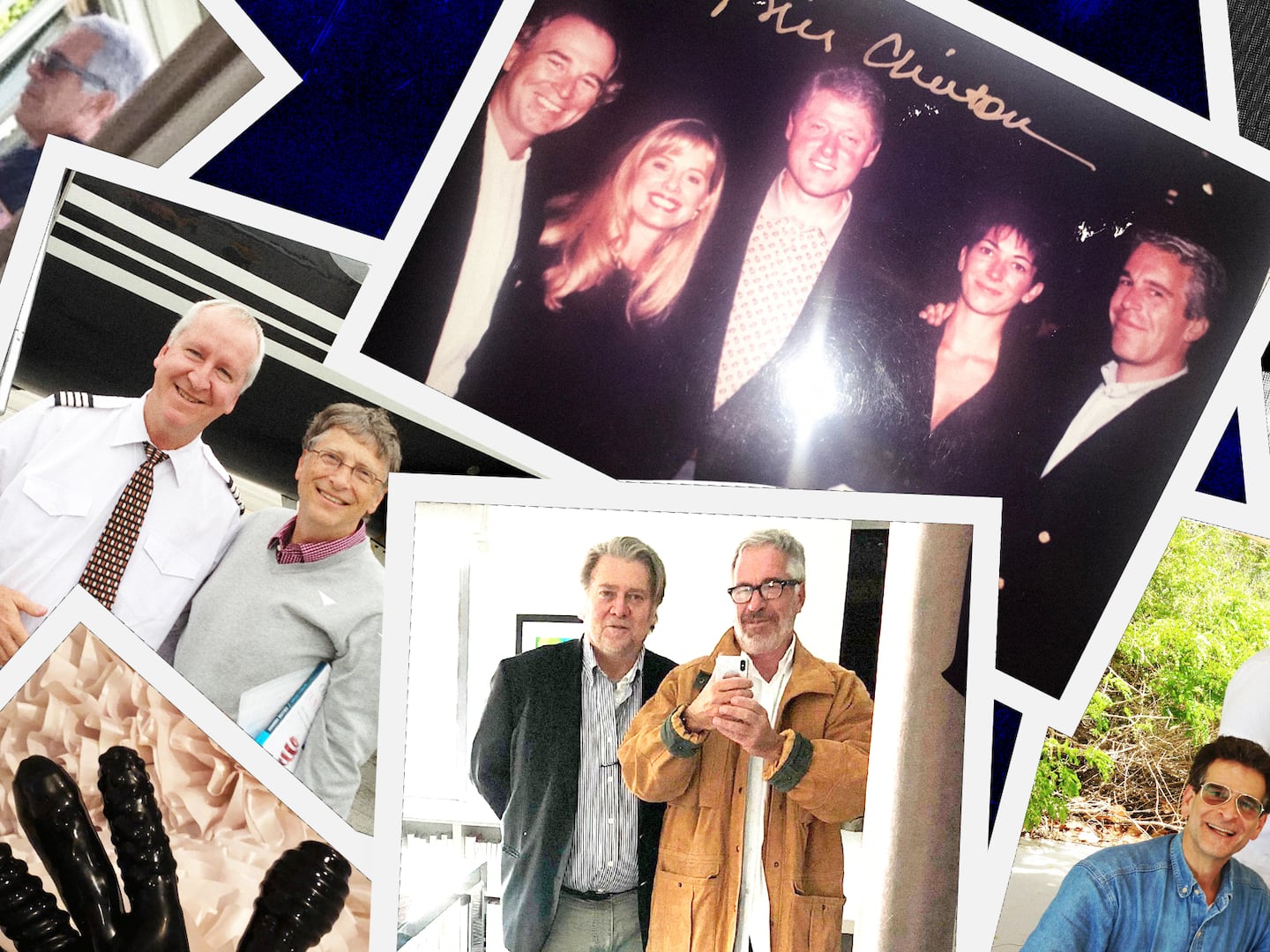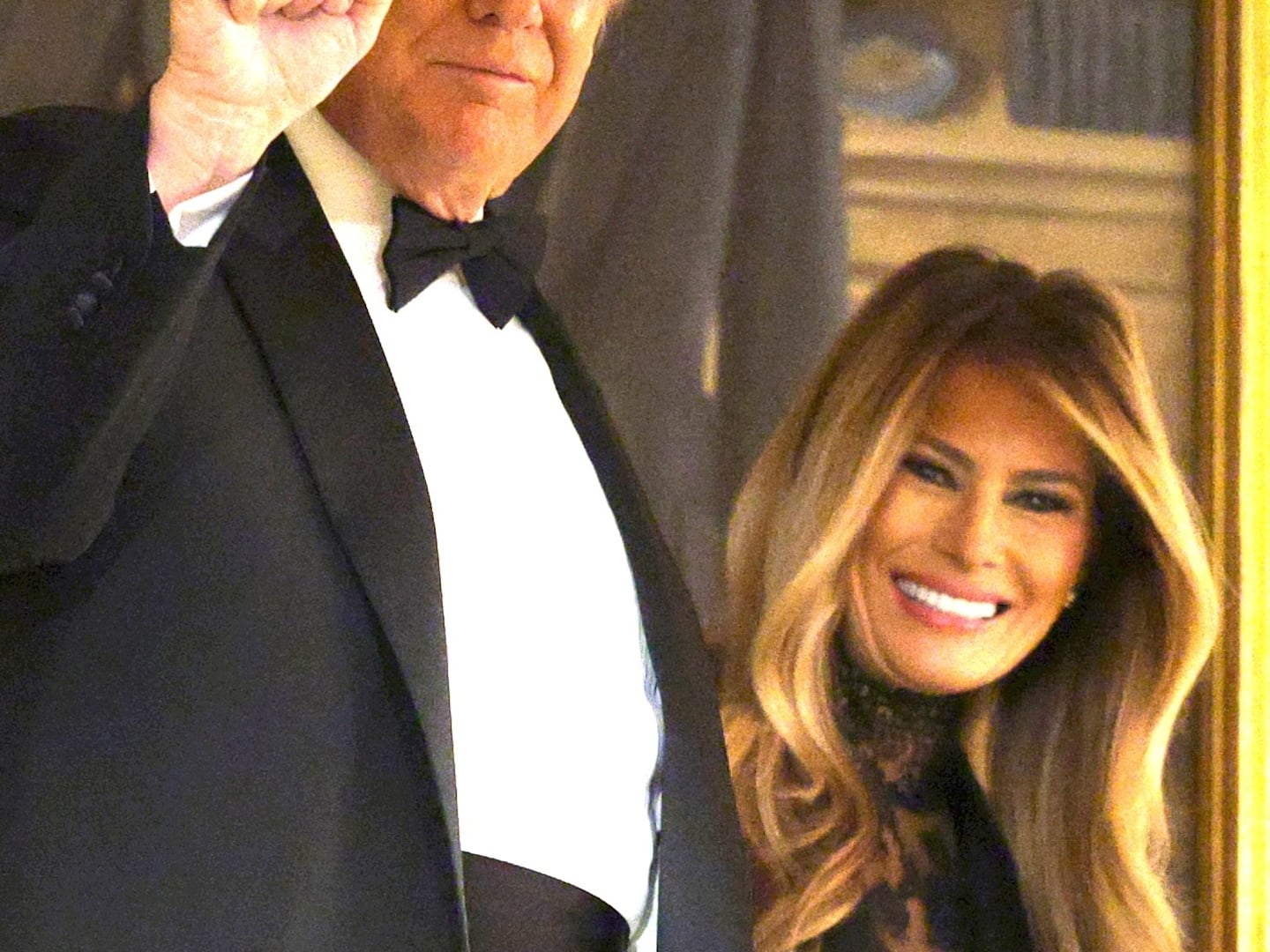
Tina Brown: So your main character, your hero, if you can call him that in Solar is a Nobel scientist who is fat, repulsive, hasn’t had a new idea in 20 years—is this the hero that a novel about global warming deserves?
Ian McEwan: I think he’s the man for the job, in a way, he’s fat and he’s greedy and he gets heavier and heavier as the novel goes on. He can never resist that last little remaining tidbit. And I suppose he is something of a stand-in for our ways of consuming in the West. No English writer who invents a comic character who’s fat can escape the long shadow cast by Falstaff. So I was always looking for a Falstaffian charm that you hope that the humor will keep the reader in the company of such a figure…
Tina Brown: Well, it is certainly true that one still roots for that fat, lazy bastard at the end, and that is your great, sort of, achievement and many, sort of, achievements. It is very, very funny, the book, I think in a way that you know, a slight new departure in a way for you. I mean is this the direction, you know, that you’re going now, which is to be more satirical?
Ian McEwan: I wonder. I don’t know. I suppose it was the origins of this novel that were comic. I found myself at a climate-change conference in Potsdam.
Tina Brown: You found yourself there?
Ian McEwan: Yes, I was beamed in. And every speaker was a Nobel Prize winner. Physicists and mathematicians mostly. And I found myself constantly in rooms with 30 or 40 Nobel Prize winners, and they were so grand. Grander than politicians. They were on giant budgets but with an edge of comic background as all their great achievements lay far in the past—the thing they got their Nobel Prize for, especially mathematics because it’s usually something you’ve done in your twenties.
Tina Brown: Do you think it’s like the Oscars with the Nobel, you know, once you’ve got it it’s downhill all the way?
Ian McEwan: Yes, in a sense. They become powerful, but they’re not doing as much science as they once did when they were hungry young men, and they were all men. And then another slightly comic push in this was, I’m not going to say found myself—I went to the Arctic with a group of artists. We spent a long time in this ship. Frozen into a fjord, lots of artistic enterprises going on but at night we would sit around talking about climate …change and what to do and a lot of idealism on show. And just through a bulkhead, which is a kind of wall, was the kit room and through the week, this kit room was falling into greater and greater chaos. And we all noticed it. We all sense this disjunction between wanting to make the world, the whole world so much larger than this boot room.
Tina Brown: It’s hysterical in this book—the mounting chaos of this boot room. So that was something you actually observed on that trip?
Ian McEwan: Well, that gave… I’ve been thinking how do you write a novel about climate change. For years, I’ve been dismissing it as a possibility and yet it’s quite an urgent subject. And it hates the novel the subject in many ways, it’s sort of virtue, politics, statistics, graphs, hard science—all kinds of things that a novel would collapse under the weight of.
Tina Brown: Of course, one of the great comic triumphs in the book is the scene in which Paul Beard tries to relieve himself in the Arctic temperature and ends up, uh, in dire distress. I mean, when did the frozen penis scene come to you?
Ian McEwan: Not while I was there, I’m pleased to say, but anyone that’s been skiing, you know, taking on all that clobber and you’re just at the top of the mountain and you think what a glorious day, and you think, Ah, damn, I need to pee. So it comes out of that really.
Tina Brown: So, I mean, why do you think you’re so attracted to writing about science?
Ian McEwan: I love the company of scientists. Like you, I know a lot of writers and liberal arts know-nothings like us, who got through our three years of university by tumbling out of bed at midday and turning in that late essay. And I have a lot of respect for scientists who really learned something at college and added a body of knowledge. And I love it for their curiosity and optimism. Us humanities types tend to wear our cultural pessimism as a badge. It’s our default position. The world is always going to hell in a handcart. You spend some time with some physicists, as I did a couple days ago—they see all the problems but they’re always thinking about solutions to them.
Tina Brown: Do you think it’s because also, that rigor is in such, kind of, depleting supply in so much of our sort of culture around us at the moment? That there is a rigor required of science that isn’t as required by liberal humanities?
Ian McEwan: Yeah. When you say around us, again, around us liberal arts know-nothings. Yes. We do need a bit more rigor. No one ever writes a review of a book and puts it up for peer review.
Tina Brown: Well you could argue the blogosphere is becoming peer review.
Ian McEwan: But we accept, for example, if you want to make a generalization, that a sample of two is about fine. And it’s not.
Tina Brown: Now how pessimistic are you about global warming? I mean, right now, in America, we’re in the huge kind of Climategate debate. Obviously the Sarah Palin school of denial… Where do you stand?
Ian McEwan: Well, I think the science is pretty much in. I spent three years reading papers on this. There’s some very elementary physics. A molecule of carbon dioxide traps heat, radiant heat, the long wave end of the spectrum. That is incontestable. Also incontestable is that we’re putting more and more carbon dioxide molecules into the air. We expect the earth to be getting a little warmer, we look, we find it is. The denialist camp, I think, really need to get off their backsides and go and do some empirical work and put it up for peer review.
Tina Brown: And yet most satire in Solar is actually directed at the sort of scaremongers.
Ian McEwan: No, I would say I’ve tried to keep, I’ve restrained myself from pushing a view in this. There’s definitely a problem. And, I think we have to be careful of not being catastrophists and saying, you know, it’s all over. Because it would have the same effect as the denialist. You might as well say let’s party for the next five years.
Tina Brown: There’s a great passage in here where Beard finds himself in the middle of one of those hideous kinds of press shitstorms that hit, where he lets fly this completely random remark about females and science, rather like Larry Summers did at Harvard.
Ian McEwan: Very much like that.
Tina Brown: Was this a bit of a metaphor for a couple of things that you’d been through, both you and your friends?
Ian McEwan: Every now and then, there’s always a bit of Islam stuff knocking around. And friends, like Martin Amis has had storms around him. James Watson, for example, I based a little on him. I mean, he said some injudicious things about race and intelligence, but the storm of indignation went beyond simply taking him on about this. And sometimes, being offended, being indignant, seems to have replaced sex as a sort of source of pleasure. People go into ecstasies to indignation. So I was interested in that, how it could blow through your house like a gale.
Tina Brown: Yeah, it does.
Ian McEwan: And you almost get addicted to it and it stops. And you… It’s like you went outside at a party and come back and everyone’s gone. You look around. It stops, like that. They just turn on a sixpence and go and look for something else.
Tina Brown: So how do you keep in check? You are now yourself very celebrated, you’ve been written about a hundred million times. I mean, how do you control the beast of the press in terms of not allowing those kind of storms to rage around your house too often? Because Martin Amis, every time he opens his mouth, I mean whether it was his comment about Islam or his comment that people should be euthanized in the local phone box or whatever crazy. He is turning into his father.
Ian McEwan: A martini and a medal was his little jibe…
Tina Brown: I must say I felt a wave of affection when I read that for Martin, but he seems to be in the middle of a constant hurricane.
Ian McEwan: Well, I think one way… I think you have to develop a carapace of boringness. Look boring and… I think book publishing is tidal. The tide comes in, you have a book out, you come out and you speak a bit, but I think you have to be quite rigorous about then just retreating into the world of family and close friends and your pursuits. My wife Annalena worked on The Guardian for many years, and I learned this terrible term from her, that they used on The Guardian. Someone phones out of the blue and says, “We’re running a piece on, ah, Prince Charles has said that broccoli’s delicious. Could you tell us what your favorite vegetable is?” If you answer, if you say, “Yes, mange-touts,” you’re down as a “ring-around tart.” You’re always good for a quote.
Tina Brown: Right, right.
Ian McEwan: You know, how many helicopter gunships do we need to quell Helmand province? Well, why not phone a novelist?
Tina Brown: Sure.
Ian McEwan: Because they’ll surely tell you exactly how many.
Tina Brown: I remember Martin said he went to Uruguay to avoid those kind of phone calls.
Ian McEwan: Well, while we were there, a bus stopped outside Martin’s house, and little Japanese tourists came out and, uh, a voice was saying through a megaphone—I don’t speak any Spanish, but I could hear—“Duh duh duh, el scritor ingles Mar-teen Aymees” And everyone was going... [mimes taking photos] So, there’s no escape.
Tina Brown: So, you know, what do we do, then, about the British press? I mean, you know, obviously one sounds terribly sort of stentorian and, you know, I mean… Ultimately, it is what it is, right? It’s not going to change. Do you think that it’s made any kind of public discourse hazardous?
Ian McEwan: It has made serious discussion really very, very difficult. People take sides. Our press is so bad, I almost feel sort of a little jolt of pride when we talk about it.
Tina Brown: Now Philip Roth, when I spoke to him a few months back, he told me that he thought in 25 years the novel would be gone, that he’s very pessimistic about the future of the novel. Do you share his pessimism?
Ian McEwan: Après moi, le deluge. Well, he’s done everything to keep the novel as a vibrant form, so…
Tina Brown: He says the competition is screens. He says screens will win.
Ian McEwan: I think the medium carrying the message might change. But I think we will still need to examine the fine print of human behavior, human relationships. So whether people are reading it on an iPad or an old-fashioned book doesn’t seem to be the real issue. We’ve invented this rather interesting means of looking at ourselves and trying to learn what it’s like to be someone else, and I think the novel, I think it’ll hang on in there, is my guess. You can’t, with a movie or any kind of TV drama, quite get that inside quality. So it might become still a minority pursuit, but it’s always been that. It still is, for all the sort of fuss and talk, literary novels is a tiny pursuit against movies and football and, you know, all the other things, rock 'n' roll. And literary fame is a wonderfully sort of tiny thing, really. Occasionally someone will come up to me in the street or restaurant, twisting their bodies in agonies of self-deprecation and say, “I’m awfully sorry, but I just wanted to say I really love one of your books.” That’s so different from having the shirt pulled off your back because you’re a rockstar.
Tina Brown: You know, Dominick Dunne once told me the story about how he once saw a woman carrying his novel into the Regency Hotel and he stopped her and he said, “That’s me on the back of the book.” And she looked at the picture and she looked at him and said, “So what?” He said it was the ultimate novel story.
Ian McEwan: Take that. Yeah.
Tina Brown: Exactly… Obviously, you came of age as a, as a sort of literary figure very much in this group, a very celebrated group that we’ve all become so acquainted and reacquainted and over-acquainted with in Britain. You know, Martin Amis, Julian Barnes, Salman Rushdie, this is the great sort of group. I think that most people would agree that you have, sort of, won the reputation race, and that you are now the most well-regarded of that entire group of novel… group of writers. And some might also say that would be something they didn’t expect, that, you know, of all the kind of writers that came up then, you in a sense, who were less, kind of, exposed in a sense with press attention and so on, really seemed to have become the most celebrated writer in England right now.
Ian McEwan: It makes me very uneasy, this sort of reputation stakes stuff. I feel very lucky that we were a generation who got to know each other before we published our first books, or just as we published our first books…
Tina Brown: And Hitchens, I forgot to add him.
Ian McEwan: Well, I think no one could quite touch Hitchens in the things that he does. So it makes me uneasy that stuff, I don’t really want to say… I think the nature of literary reputations is such that they shift and change all the time. And someone’s up and someone’s down and someone’s last novel is hugely received but their next novel isn’t. The other phrase that really sends shivers down my spine and that’s been used of me lately is “national treasure,” which…
Tina Brown: “National treasure” is a little scary.
Ian McEwan: … is a ticket to oblivion. What writer would want to be a national treasure?
Tina Brown: What does England’s national treasure—think about England? We’re just on the beginning of an election campaign. I mean, where do you stand?
Ian McEwan: Well, the government is tired, and it’s been in power many years, but the alternatives don’t seem very bright. The Tories don’t seem to have any great talents, apart from Dominic Grieve, the shadow home secretary, seems to me intellectually of great interest. But otherwise, I think it feels to me as if the sixth form of Eton are kind of wanting to run the country and they don’t seem to have many ideas. It’s not a lot separating the two parties.
Tina Brown: Well, talk about… Cameron, from your point of view, is good on the environment, right?
Ian McEwan: Well, he says he is. But I mean, he’s gone quiet on that lately. I don’t know, I think I’m taking the unfashionable view that I think I’d rather give Gordon another year or two than let these boys in, is my sense.
Tina Brown: You said that you get, you got less pessimistic as you get older. Is that to do with a happy marriage or mixing with scientists?
Ian McEwan: What is it? I think in your twenties, especially if you’re a writer, you can really lay about you recklessly with your pessimism. I mean, I remember times when we were talking about the threat of nuclear war, there was one little bit of me that was sort of, “Bring it on, it’ll be so interesting.” Because I had no stake in it. Then what happens? You have children, you see friends die, you see how difficult public administration is, how hard it is to get things right, and you begin to be desperate for the human project to succeed. You want it to succeed. You begin to sort of love people more and you want the thing to go on.
Tina Brown: So what makes you optimistic now?
Ian McEwan: I think we are very, very clever monkeys. I think that we will, it’s our cleverness that got us into this mess with climate change, we’ve found a way of replacing human labor by burning first coal, then oil and gas. And there are plenty of really good ideas out there about, not only about how to live, but how to power our civilization. Maybe it won’t come from governments. I’ve a feeling it’s going to come from individuals, small businesses, human ingenuity—spread away from centers of power. So that’s my…
Tina Brown: Ian McEwan, thank you so very much.
Ian McEwan: It’s been a pleasure.






